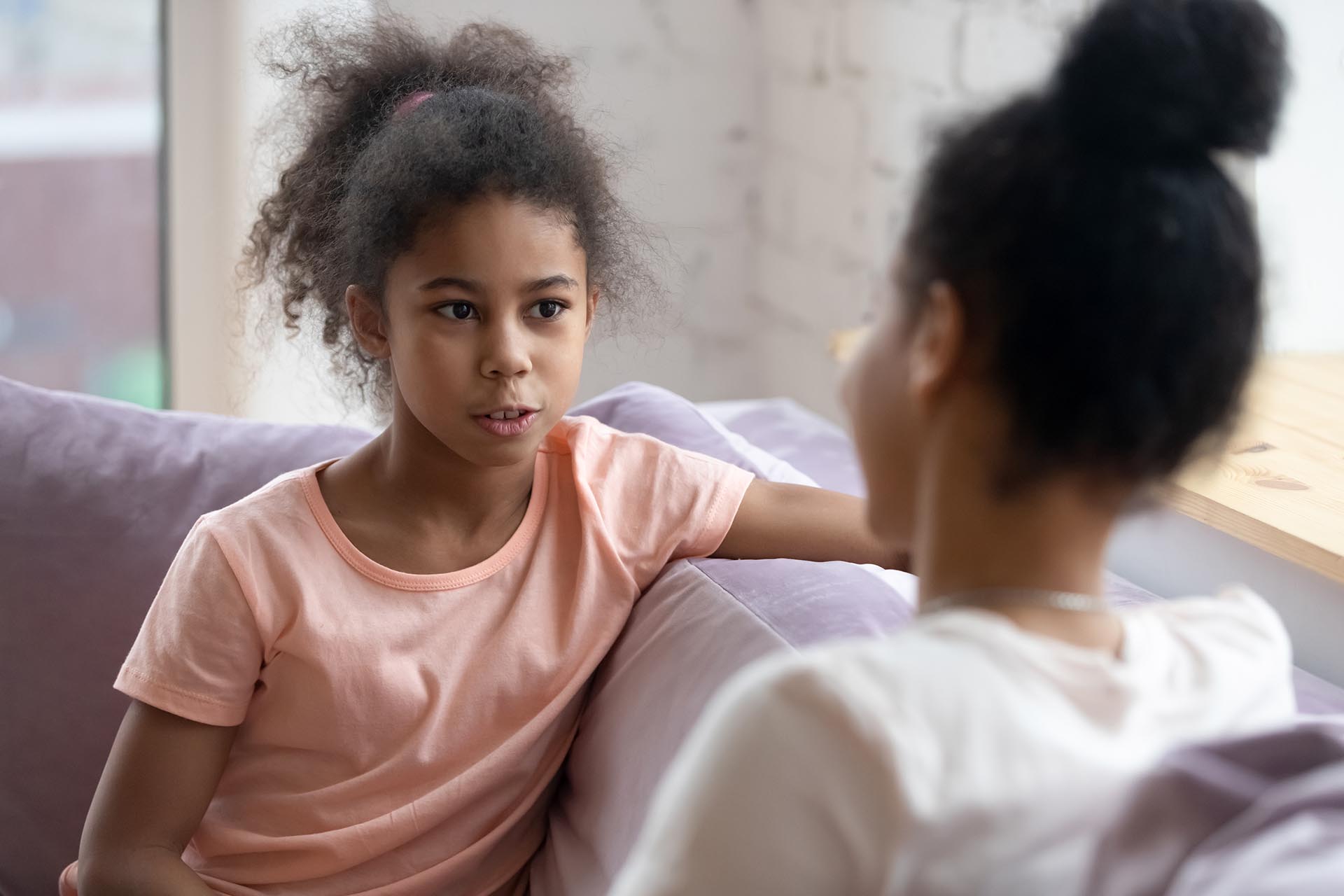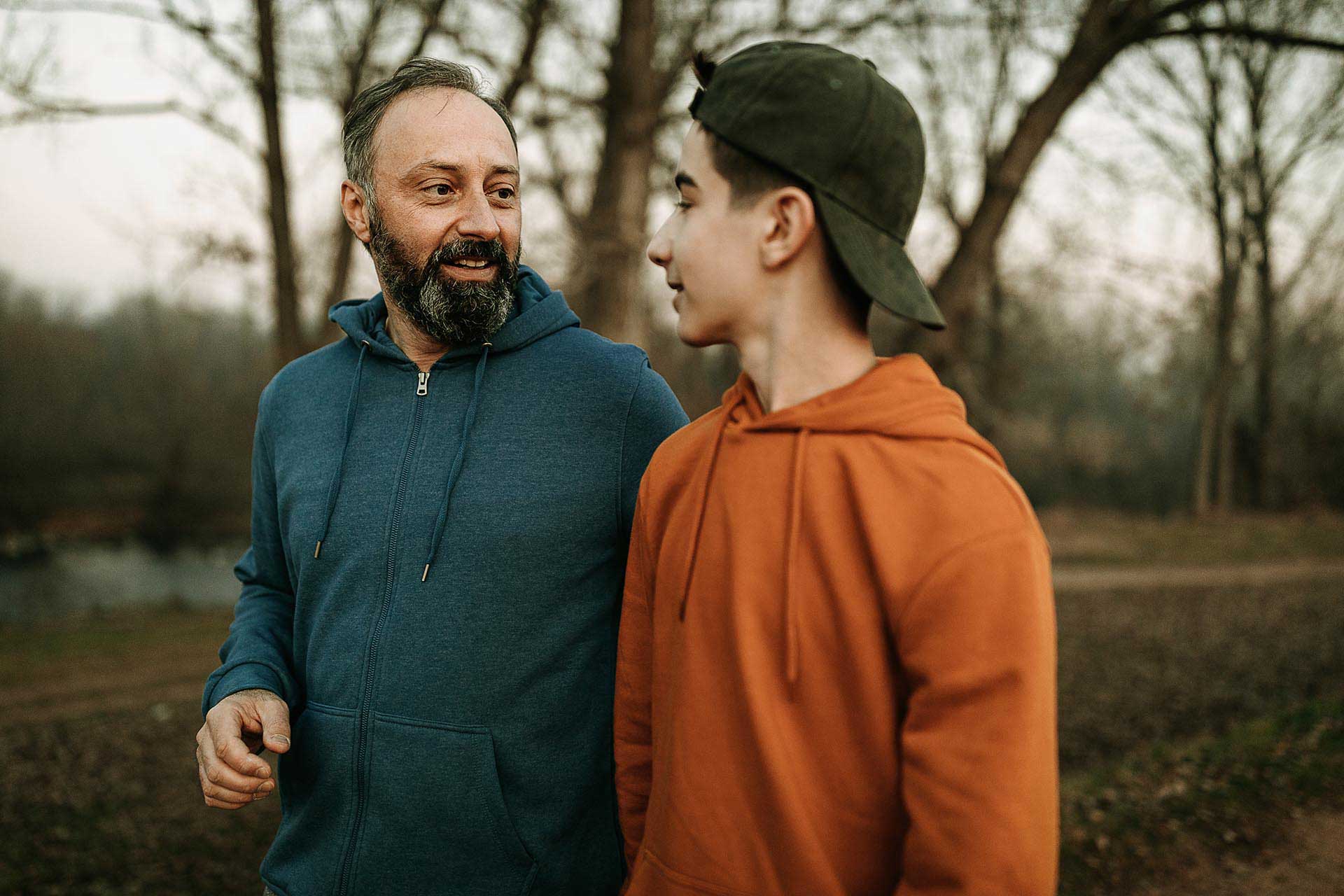The puberty talk you might have missed (but need to have)
There are a lot of changes that come with puberty: growth spurts, body hair, periods, wet dreams, mood swings and many more. Most of us will have a pretty good checklist of developments that kids need to know about. But there’s more that young people need to know – and can worry about – beyond the simple physical and psychological changes. Parents might not bring up or even know about the more complex or intangible aspects of adolescence. Like what, you ask? Read on and find out.
They don't need to worry
It’s easy to forget how scary the changes of puberty can feel to a kid on the brink of adolescence. After all, we’ve all lived with breasts or facial hair (or both) and the whole adult-body mixed bag for decades. But it’s both normal and very common for kids staring down these developments to feel anxious about them. As parents, we need to ease their fears and reassure them that there’s nothing to worry about and that these changes don’t happen overnight.
Bodies changing can be exciting
Following on from the last point, you might like to encourage your child to approach their developing body with curiosity and wonder. Isn’t it exciting how your brain is developing? How cool is it that your body is growing so that one day you can make a baby if you want? Isn’t it amazing what the human body can do? Growing up comes with many wonderful things and experiences they’ll get to have, and it’s something to look forward to rather than fear.
Bodies grow and change at different speeds and in different ways
Puberty can come with a lot of comparing. Bodies growing too slowly or too much. It’s important that young people know that their bodies will grow and develop in their own time, not all at once and not at the same time or in the same ways as other people. There’s nothing to be gained from comparing their body to anyone else’s, and there will be aspects of their body that others would wish they had. On this note, it’s also important to remind young people not to comment or tease someone for being either ahead or behind in development.
You might say: ‘I know I’ve spoken to you before about the changes of puberty, Well, I just wanted to touch base about that. Is there anything that worries you or that you’re curious about? It’s just really important to remember that all bodies grow and change at different rates and that it’s all normal and nothing to fear. Sometimes things will be slow and sometimes things will happen quicker (but never overnight) – and both are normal. It can be hard, but try not to compare your body with others.’
There’s nothing wrong with new curiosities and desires
Along with mood swings and heightened emotions come other psychological changes, including new curiosities and desires. It’s important kids know that these feelings are completely normal and natural – and are nothing to be ashamed of. Some kids also won’t develop sexual feelings for a while, and some never, and that’s okay as well. Either way, it’s just good to check in with young people and let them know they might experience these new feelings, and that it’s normal. Remember, books are always good help if you’re feeling particularly uncomfortable about talking.
Gender identity can grow and change with puberty
For all young people, puberty is a time when gender identities can really cement themselves. It’s when gender dynamics suddenly become important and people might start thinking about who they’re attracted to. But they also might be thinking about how they identify. While for most kids, puberty will just confirm that their gender identity is the same as the sex they were assigned at birth, others might realise that their gender is different to the label they were given when they were born
Friendships might grow and change
Adolescence is a time of great change – and that can include social circles. Through growing up, changing from primary school to secondary school and developing new interests, new friendships often develop as others fade. And that’s fine and normal. The length of a friendship is only one measure of success; it’s okay for kids to decide they want to spend time with different people. So long as a friendship makes you feel good most of the time, it’s okay whether it lasts a lifetime or just a summer.
Their want for independence is normal
The push for independence that often comes with puberty isn’t just tough for the parents, it can be painful and confusing for young people too. Outwardly, they might be telling you to get out of their face, but inwardly, there’s still the same need for parental approval and affection. That pull between their opposing desires can be difficult to understand or manage, and it can help if teens know what they’re experiencing is normal and okay.
You’ll stick by them – even when they don’t want you to
Following on from the last point, there’s an extra message to tack on when talking to them about their desire for freedom. Let your child know you’ll give them space when they want, but also be there for them when they need it. Even if it seems like they’re not listening – they are. They’re still taking on your messages and they want to hear from parents. This reassurance will help them go forth into the world without guilt, and with the knowledge that they can always turn to you and once again become a ‘child’ who will be cared for when they need it.
And don’t forget to listen
Finally, the last and one of the most helpful things parents can do during this period is to take a step back and just listen. As kids get older, our role becomes less about talking and more about listening. Having a sympathetic ear may be all the support they need at times. And at the end of the day, it’s up to them to work out who they are and what they believe in as they become adults.
Further reading
- Our fact sheet: ‘Let’s talk: puberty’
- Our fact sheet: ‘Let’s talk: 5 tips for talking’
- Our podcast episode: ‘Talking puberty with your teen or child’
- Our article: ‘Puberty myths your child needs debunked’
- Legitimate Sexpectations: The Power of Sex-Ed, Katrina Marso
- The New Puberty, Amanda Dunn
- The Secret Lives of Teen Girls: What Your Mother Wouldn’t Talk About but Your Daughter Needs to Know, Evelyn Resh











